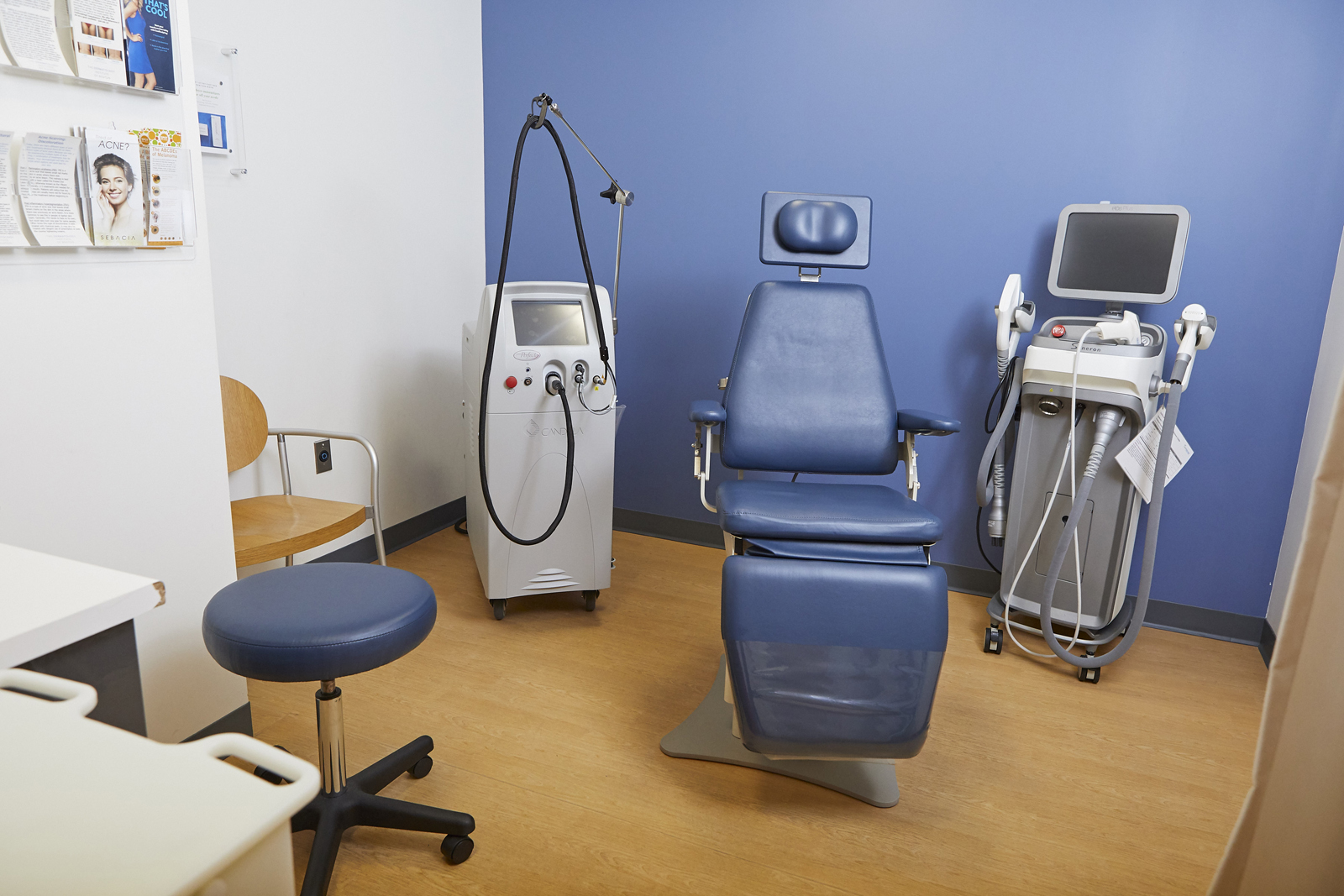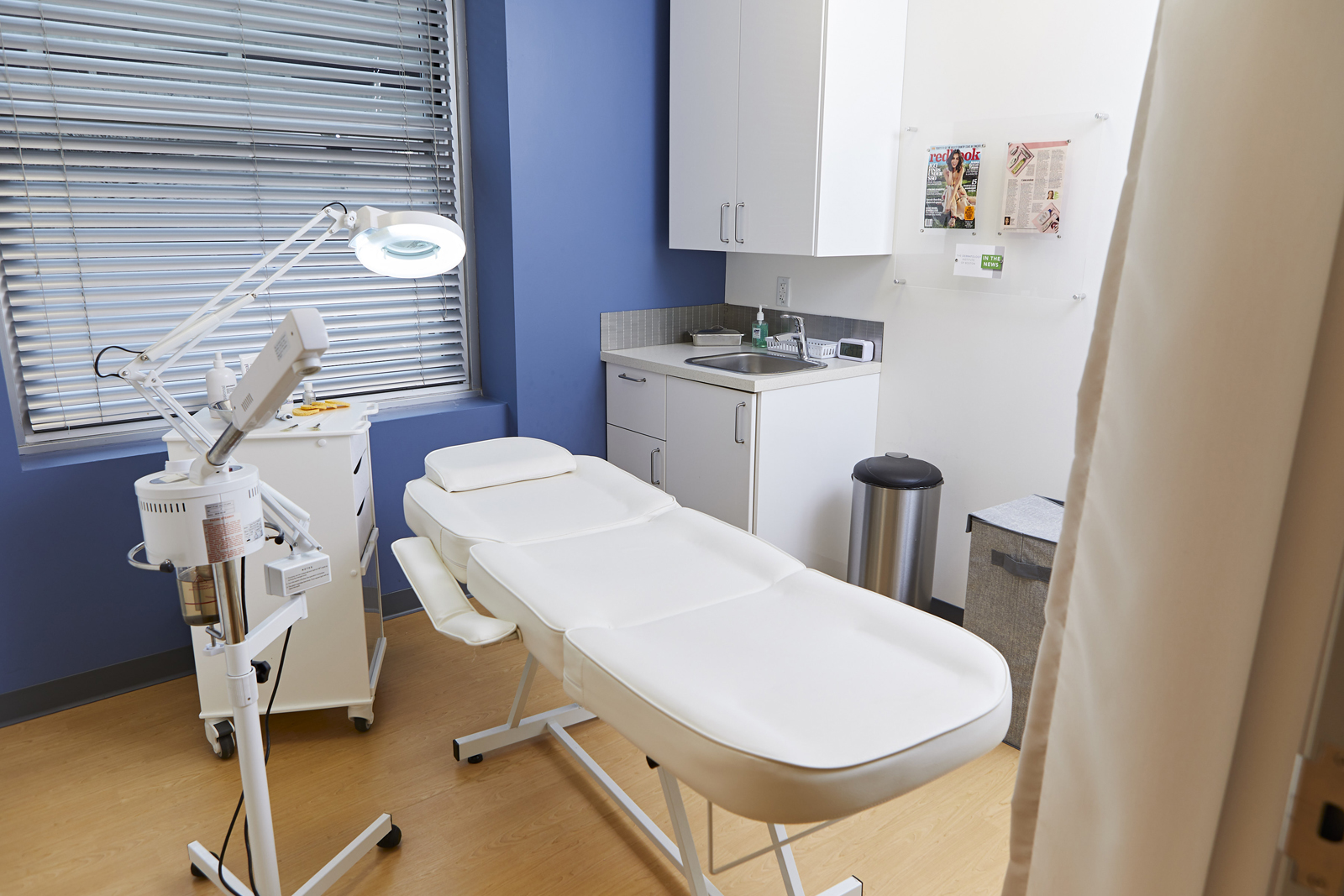About Us
Jump To
We are highly trained, renowned physicians and staff. All of our physicians are board-certified and known internationally for their expertise. We are often recognized as one of the best places in Boston to see a dermatologist.
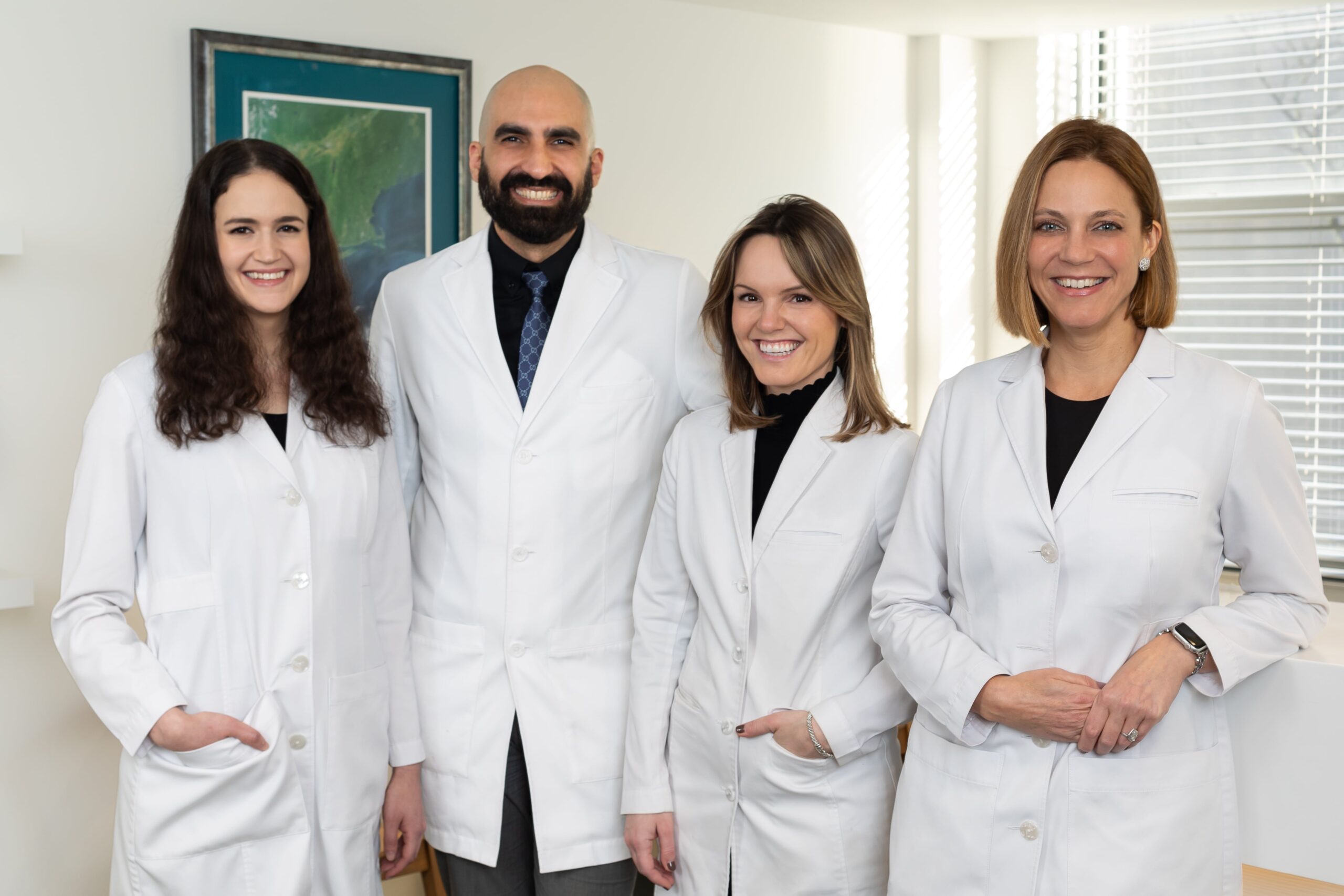



Our team is credentialed as dermatology technicians and is meticulously trained to best care for our patients.

Everyone was so kind and the process of going through the appointment was so easy!
– Ilana Keusch, patient
Emmy Graber, MD, MBA
Founder and President of The Dermatology Institute of Boston

Emmy M. Graber, MD, MBA is the Founder of The Dermatology Institute of Boston, a private practice in Boston, Massachusetts. With over ten years experience, Dr. Graber, a board-certified dermatologist, treats a wide range of dermatologic issues and specializes in acne and cosmetic dermatology. She is currently an Affiliate Clinical Instructor at Northeastern University and has extensive experience teaching students of all types.
Read Full Bio
Ali Al-Haseni, MD
Dermatologist

Ali Al-Haseni, MD is a board-certified dermatologist with additional specialty training in cutaneous oncology (i.e. skin cancer). He has expertise in skin cancer diagnosis and treatment and is skilled in general dermatology, surgical dermatology and cosmetic dermatology.
Read Full Bio
Shiri Nawrocki, MD
Dermatologist

Dr. Shiri Nawrocki, MD is a board-certified dermatologist with a particular interest in acne, eczema, skin cancer, and cosmetic dermatology. She graduated summa cum laude from the competitive combined BA/MD program at Rutgers Robert Wood Johnson Medical School in New Jersey, where she graduated with a Distinction in Research.
Read Full Bio
Neelam A. Vashi, FAAD
Dermatologist

Dr. Neelam A. Vashi, FAAD is a board-certified dermatologist with a distinguished background in academic medicine, now bringing her expertise to the Dermatology Institute of Boston. Dr. Vashi is the former Director of the Boston University Cosmetic and Laser Center and Founding Director of the Boston University Center for Ethnic Skin. She has served as an Associate Professor of Dermatology at the Boston University Chobanian & Avedisian School of Medicine and an Adjunct Professor of Dermatology at Virginia Commonwealth University.
Read Full Bio
Ashton Frulla, MSN, NP-C, DCNP
Nurse Practitioner

Ashton Frulla, MSN, NP-C, DCNP, is a board-certified and dermatology-certified nurse practitioner, bringing several years of clinical experience and expertise to his practice. He has been serving patients in New York City since 2017 and has recently relocated to Boston to join the Dermatology Institute of Boston. Ashton is an active member of the Nurse Practitioner Society of the Dermatology Nurses’ Association and the American Association of Nurse Practitioners.
Read Full Bio
Kirsten Swenson, MS, MBA
Executive Director
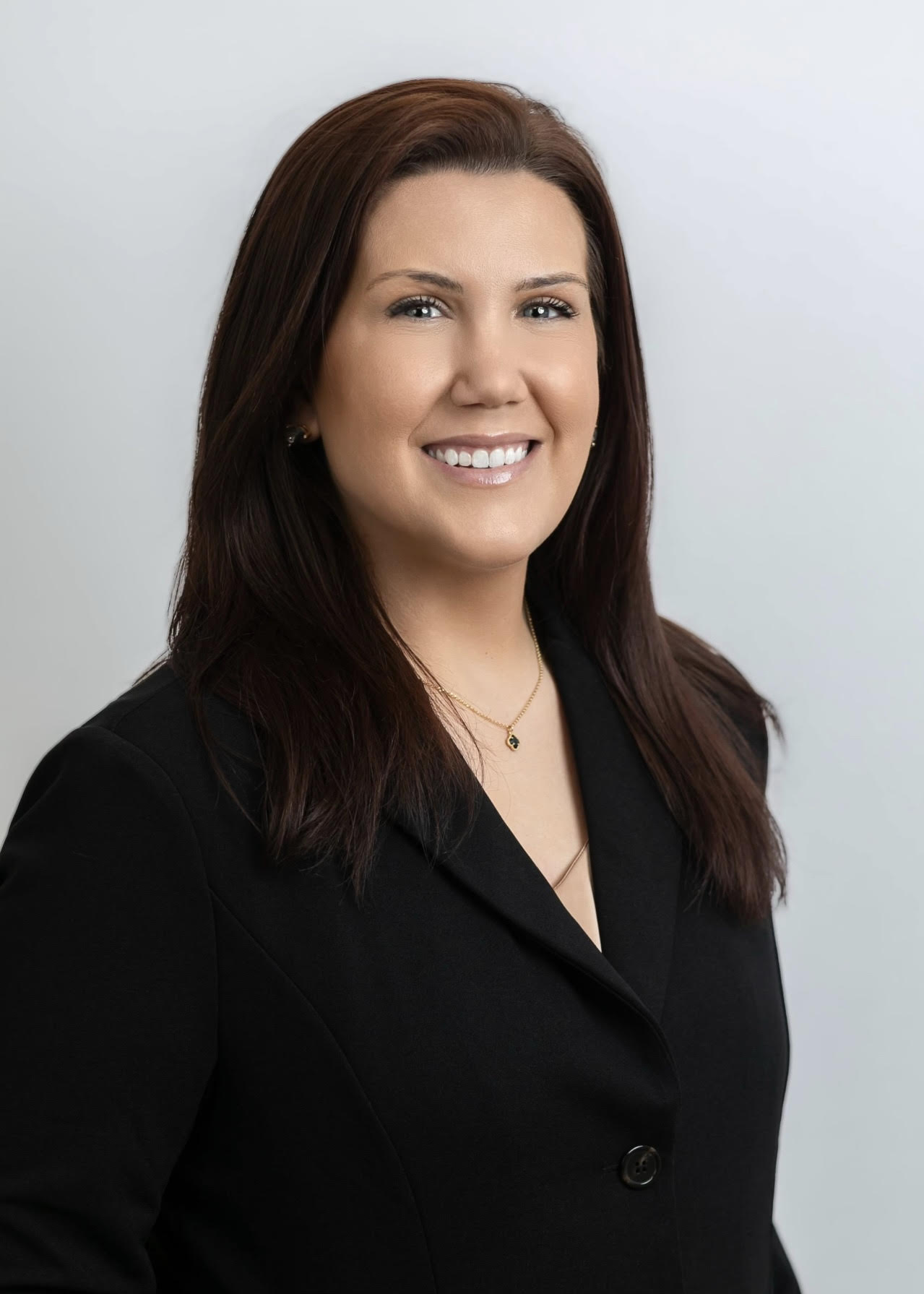
Kirsten joined the practice in 2019 as a Medical Assistant and was shortly thereafter promoted to the Director of Clinical Operations and Research where she led the team of medical assistants, coordinated the clinical research, and oversaw the daily clinical operations of the practice. After graduating in 2017 with her MBA, she later went on to obtain her MS in Medical Science from Boston University School of Medicine. She has a diverse background with over 10 years of experience in many healthcare settings, including hospital-based, residential, and private practice. Her passions in the workplace include strategic planning, mentorship, and continuous process improvement with a goal of providing the highest quality of care to patients. Kirsten is currently attending the Physician Assistant (PA) program at Boston University School of Medicine. She is looking forward to becoming a PA in the future, allowing her to combine her passions for clinical care and leadership.
Allison Birch
Administrative Manager

Allison graduated from the University of Maine in 2016 with a degree in political science. She recently left her career in law to pursue a new job in the medical field. In her free time Allison likes to read, travel and spend time with friends.
Morgan Leasure
Lead Medical Assistant

Ana De Campos
Lead Medical Assistant
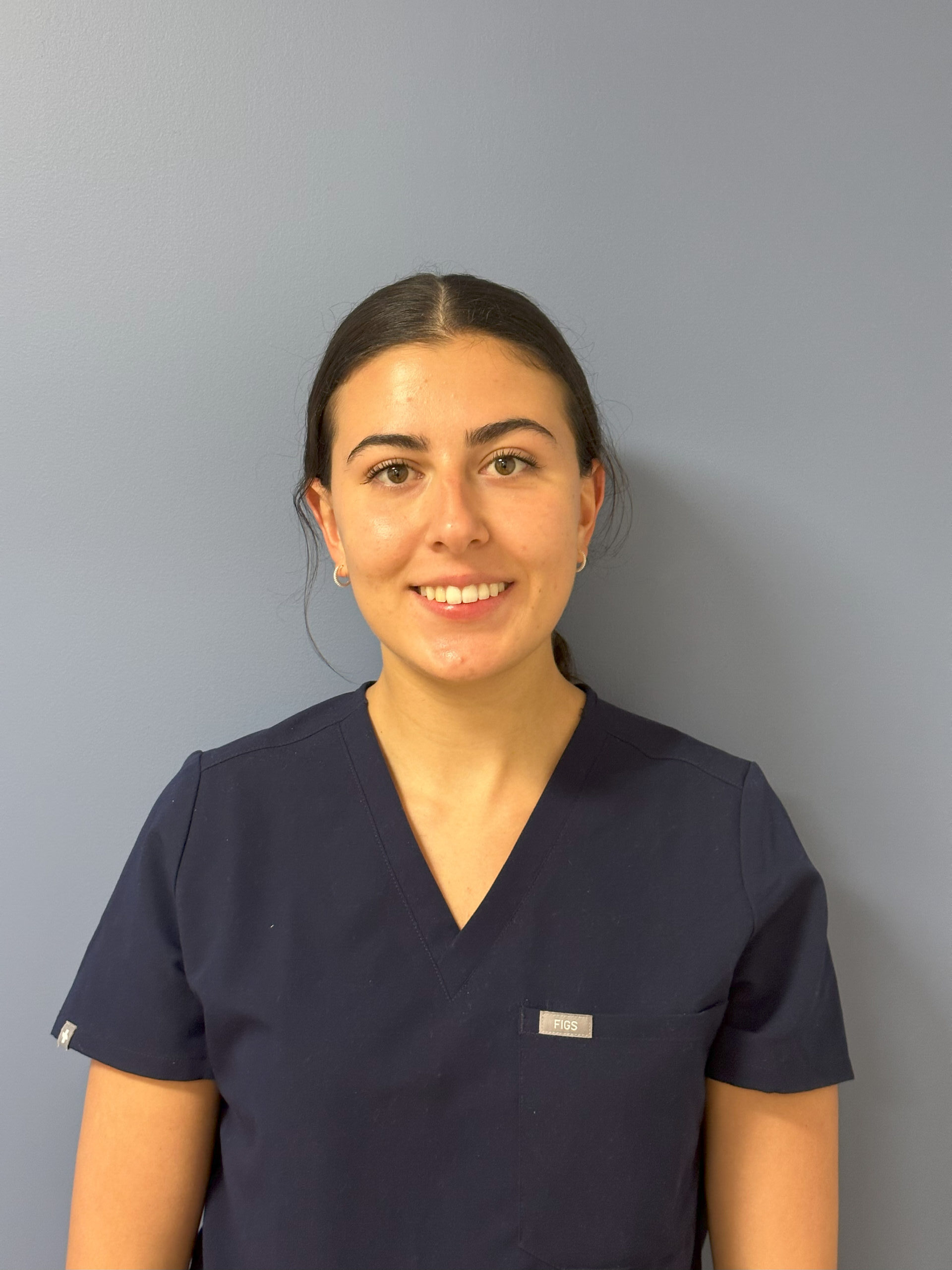
Tim McGrath
Medical Assistant

Jayda Pham
Medical Assistant

Lydia Gomez
Medical Assistant

Sophia Erickson
Medical Assistant

Madison Grace Holcomb
Medical Assistant

Judy Min
Medical Assistant

Jessica Gaytan
Medical Assistant

Stephen Marandola
Medical Assistant

Brooke Warren
Medical Assistant
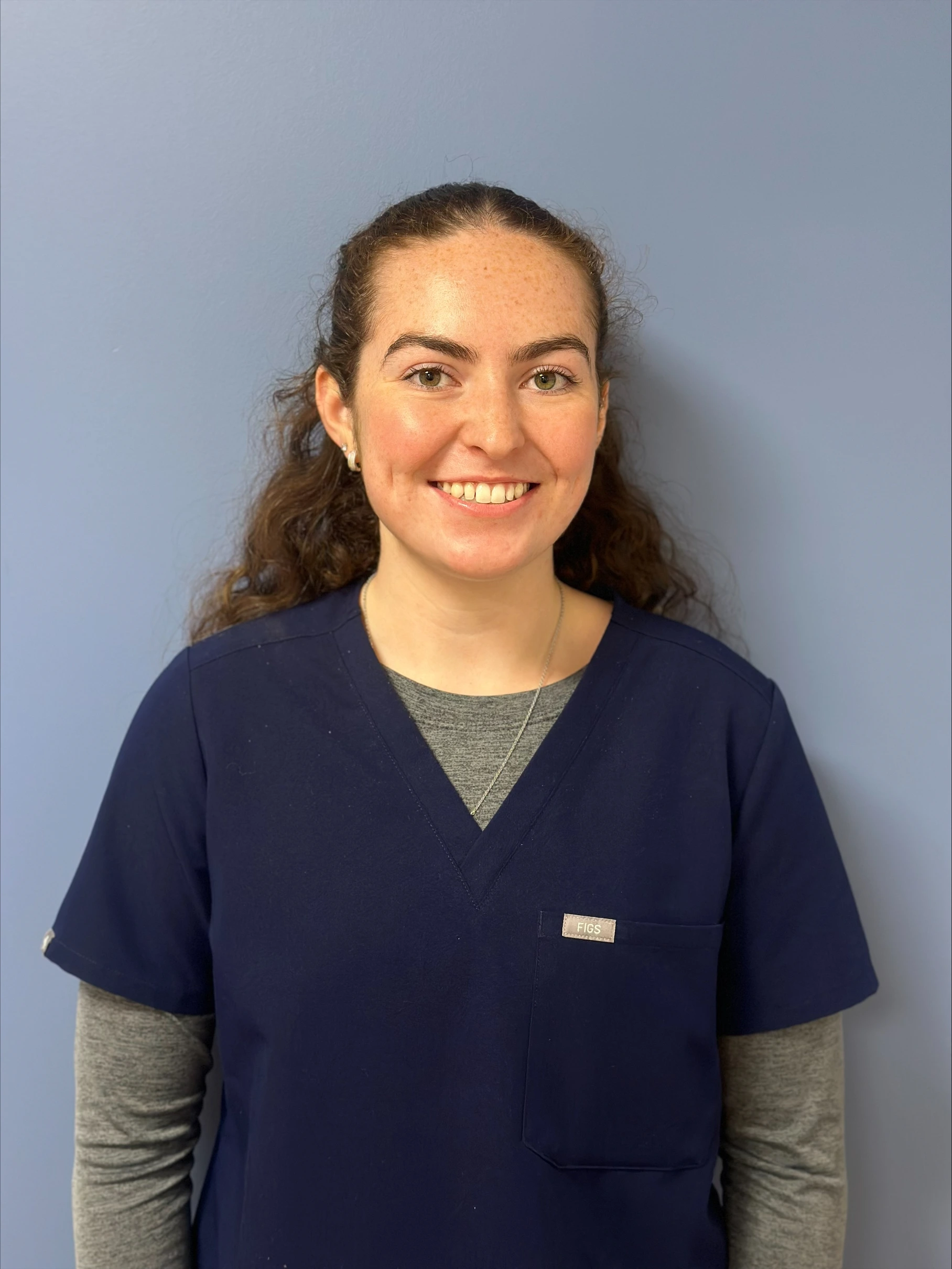
Norah Nguyen
Patient Care Coordinator Intern

McKenzie Salcher
Patient Care Coordinator Intern

Our team is comprised of caring, kind Certified Dermatology Technicians who strive to provide compassionate, professional health care and customer service.
Our Credentials


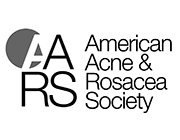

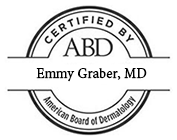

Our Office
Frequently Asked Dermatology Questions
What does it mean to be a board-certified dermatologist?
A board-certified dermatologist is a highly skilled doctor (M.D.) whose expertise includes diagnosing and treating ailments on the skin, nails, and hair. They have years of experience in the field of dermatology, and they are essential to the services that dermatology clinics provide.
They can also practice their profession in hospitals and other related healthcare facilities. For a dermatologist to become board certified, they have to meet a substantial amount of eligibility requirements in addition to passing the necessary exams. By the time you’ve sat in a board-certified dermatologist’s office, they have already spent:
-
- 4 years of undergraduate education getting a Bachelor’s degree
- 4 years in medical school earning their M.D. or D.O. degree
- 4 years in residency training, where they specialize in the field of dermatology
- Passed medical school licensing exams and board certification exams
Some dermatologists complete additional years of training after residency to subspecialize in surgical dermatology (medical dermatology), cosmetic dermatology, or pediatric dermatology. However, all of them are well-versed in a baseline of treatments to handle many common disorders regarding hair, skin, and nails. A board-certified dermatologist is a dedicated individual with significant knowledge and passion for medical dermatology.
Are there different types of dermatologists?
Is it important to see a dermatologist?
It’s inevitable that any dermatologist would advocate for at least a yearly visit, but the importance of these visits usually goes unnoticed by many people. The skin is one of the most sensitive organs of the human body, and it plays an integral role in our overall health. Moreover, a long list of disorders and physical changes happen with the skin over time, and regular checkups with a dermatologist will let you know if anything sticks out from the norm.
The skin’s condition can also be very telling for anything that might be happening inside the body. It isn’t uncommon for an internal illness to show signs of illness through the appearance of the skin. Although many individuals may not be able to come to this conclusion themselves, a dermatologist can pick up on these changes instantly.
Additionally, visiting a dermatologist can give you the power to be proactive about an ailment or disorder that might be slowly developing internally or externally. If a dermatologist finds something odd about the skin, they know exactly which steps need to be taken next to ensure the patient’s well-being in the long run.
How much is a dermatologist visit?
This is guaranteed to vary based on the expertise, location, and method of treatment, but there’s a general range that you can expect with most dermatology visits. Within the U.S., it’s common for a dermatologist visit to cost anywhere between $100 to $300. Most types of visits will be covered by insurance. Your dermatologist will be transparent about the costs you can expect and will let you know what services are covered by insurance and which are not.
If you happen to need specialized, ongoing treatments, you can expect these costs to rise, and some will be more expensive than others. Nevertheless, you’ll always have the ability to discuss your options with your dermatologist so you can take the most cost-effective approach.
Initial visits usually entail a consultation and a general checkup of your current condition. If anything needs to be explored further, your dermatologist will suggest various treatments that cater to your specific needs.
When should you start seeing a dermatologist?
It’s recommended that those over the age of 18 should start looking into seeing a dermatologist annually for skin cancer screenings, especially if you have a strong family history of skin cancer. This is a good starting point for those who may not be suffering from any specific disorders. Regardless of age, if you’re noticing adverse effects on your skin, hair, or nails, it never hurts to consult a dermatologist about it.
Many different disorders in the field of dermatology can quietly develop over time without you noticing. When you go to a dermatology checkup, their expertise will be able to pick up on any visible abnormalities. In extreme cases, some disorders can be life-threatening, and the health of your skin, hair, and nails shouldn’t be taken lightly.
You also want to work with a skilled dermatologist you can rely on, and if you’re looking for a dermatologist in Boston, we offer multi-faceted solutions that ensure your health stays on track. Whether you’re currently dealing with a particular disorder or haven’t seen a dermatologist in quite some time, don’t wait to reach out to us and schedule an appointment.
Are dermatologist visits covered by insurance?
Most medical dermatology visits and procedures are covered by insurance. This may vary depending on the exact terms of your insurance plan, but you can expect insurance assistance when it comes to medical dermatology visits.
However, it’s common for insurance companies to avoid providing any assistance when it comes to cosmetic dermatology. This is because the treatments are cosmetic in nature and don’t focus on anything medically related. You can expect to pay for most cosmetic dermatology procedures out of pocket.





